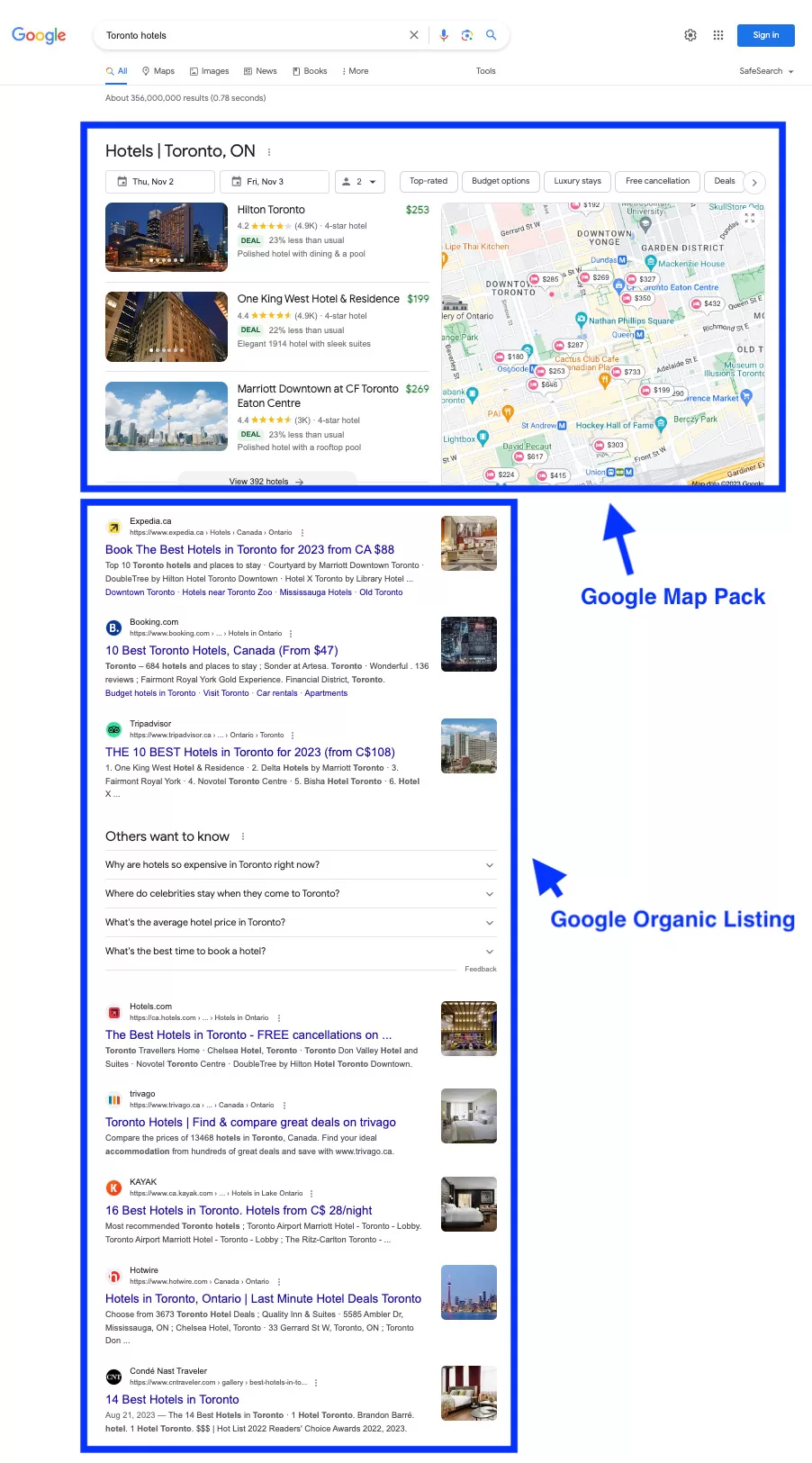Local SEO for Hotels: Dominating the Local Search Results

Local SEO for hotels revolves around improving your hotel’s Google Business Profile visibility in Google Local Map Pack, Google Maps, and organic listing rankings to entice prospective guests within your geographical vicinity. When travelers search for accommodations within your region, Google tailors its results according to their location. For instance, if a user searches for “Toronto hotels,” Google will prominently display three Toronto hotels within the Google Local Map Pack, along with hotel websites or directories featuring accommodations in Toronto within the organic listings section.

To optimize your hotel website’s local SEO, here are 5 local hotel SEO approaches you can use.
Create a Comprehensive Google Business Profile Page
Your Google Business Profile listing is the page that Google shows on Google Map Pack and Google Maps. Hence, ensure that your listing is claimed, accurate, and complete with essential information like your hotel’s name, address, phone number, website URL, and business hours. Also, include high-quality photos of the interior and exterior of your hotel and its amenities to attract travelers to book rooms at your hotel.
Incorporate Relevant Keywords in Your Website Content
Include relevant keywords that travelers are likely to use when searching for hotels in your area. Incorporate these keywords naturally into your website content, including your homepage, service pages, title tags and blog posts.
Gain Positive Google Reviews
Once you have created a Google Business Profile and filled the profile with all the necessary information, encourage your customers to write Google Reviews about their experience at your hotel. Gaining more positive Google Reviews will benefit your Google Business Profile ranking in Google Map Pack.
Create Location-Specific Landing Pages
Travelers often search for location-specific services such as “Toronto spa” or “Vancouver fine dining”. If you offer such services, create location-specific landing pages for these services. For example, if you manage a Toronto hotel and the hotel offers a spa, create a “Toronto Spa” page so that the webpage can rank for search queries related to “Toronto spa.”
Earn Quality, Relevant Backlinks
Backlinks remain an imperative aspect of SEO. By gaining more backlinks to your hotel website, you’re showing that your website is credible and authoritative. This showcase helps your website improve its search ranking in Google Map Pack and organic listing because Google wants to display credible websites more highly on Google search results.
Local Schema Markup
Schema markup provides more additional information about your website for Google to understand. You can include information such as hours of operation, latitude and longitude of your hotel, and that your website is about a business. Adding this information better helps Google understand what your website is about and where your hotel is located so that Google can display your website accordingly based on traveller’s geo-specific searches.
Optimize Mobile Website PageSpeed
Given the increasing use of mobile devices in travel planning, ensure that your website is optimized for mobile users. This includes fast loading times, responsive design, and an easy booking process.
If your team wants any help with hotel SEO for your establishment, please feel free to book a complimentary discovery call and our team will be happy to help!

